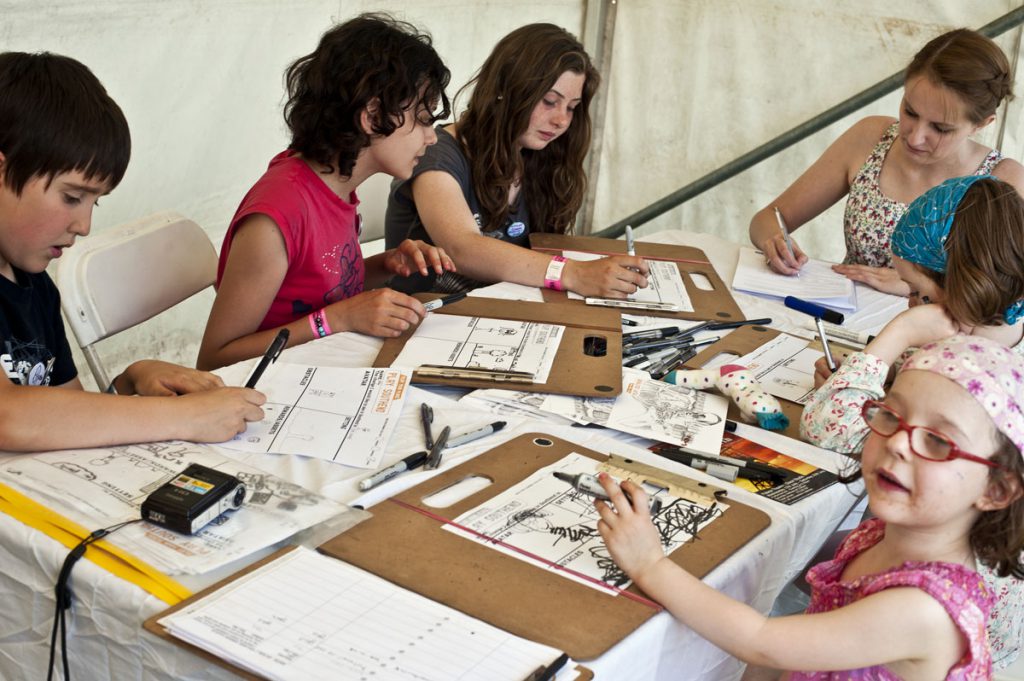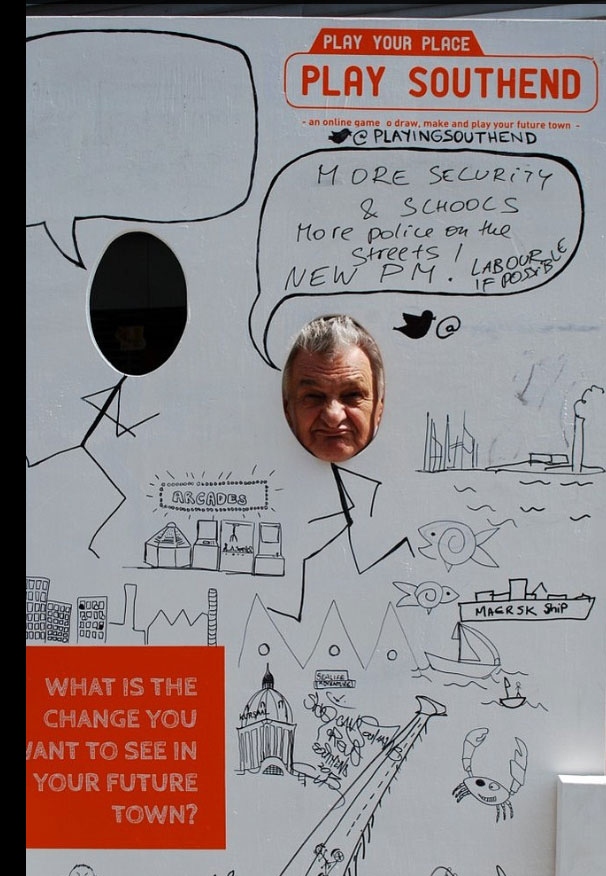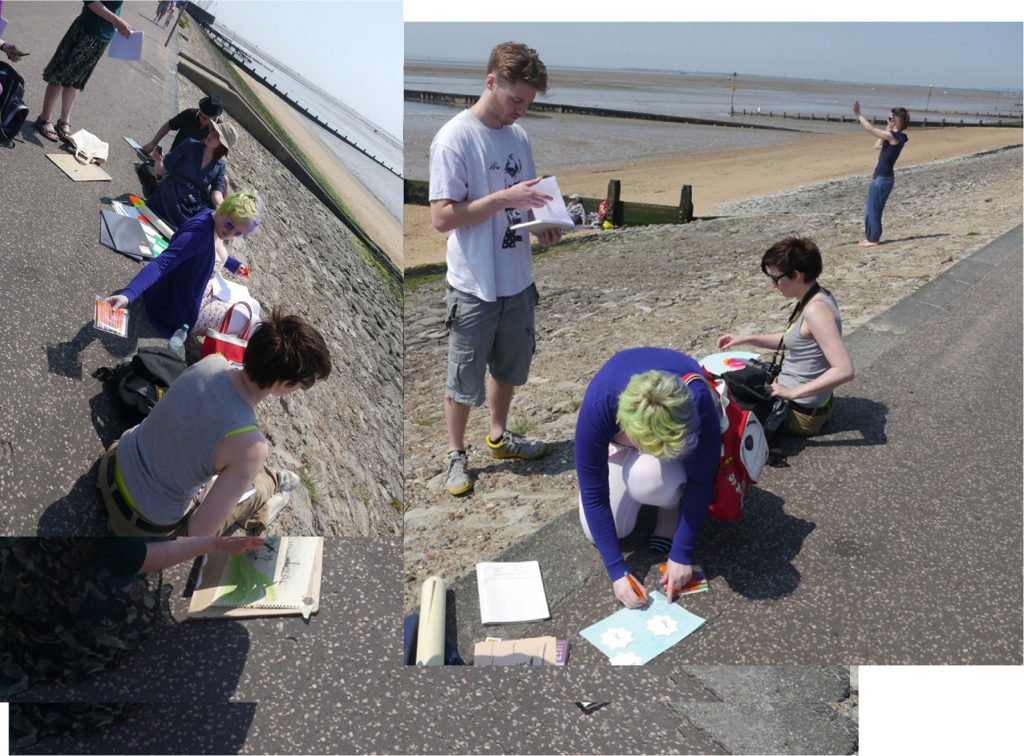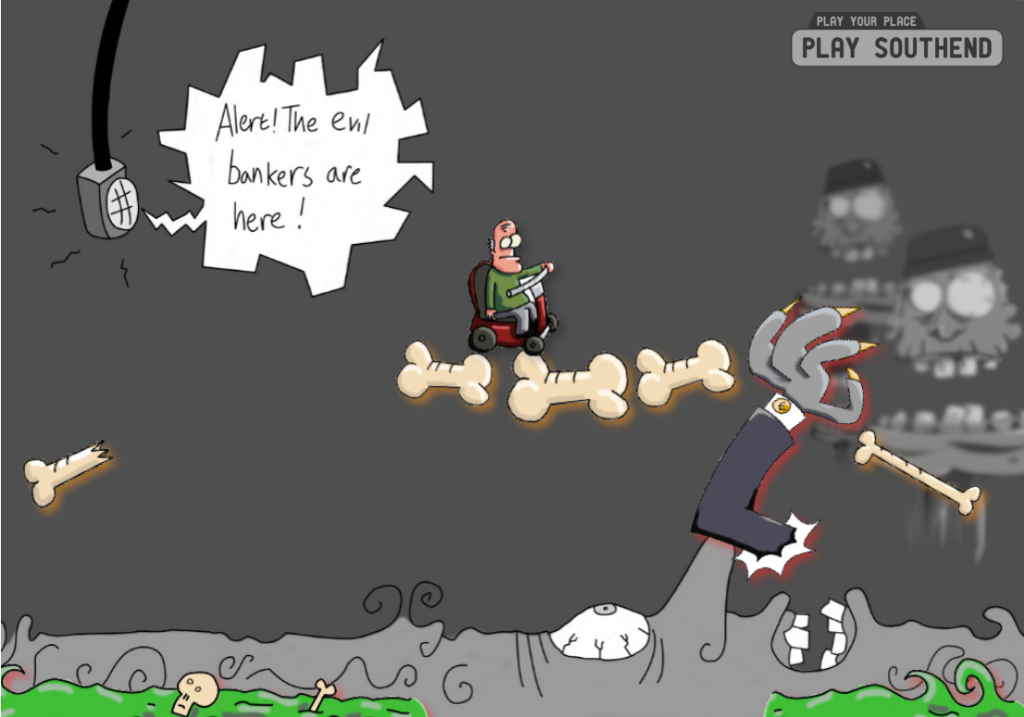

















Video
[play your place]
Video game public art platform, software, video documentation
dimensions variable
2013-2016
[play your place] is an open public artwork and online game-building system. Artists Mary Flanagan and Ruth Catlow, as LOCALPLAY, use drawing and play as a way to catalyze and translate local, speculative visions of place into games that not only communicate community values but contribute to real-world urban planning.
From retirement homes to festivals to schools to shopping malls, LOCALPLAY engaged thousands of residents to participate in imagining, drawing, and digital game making about their communities.
Local people brought their own perspectives to these public game jams, and drew. In drawing, they create the materials for their own game level. Then they think about how it could be changed for the better. They devise their own rules, drawing obstacles and rewards, building and sharing game level after level for an epic play session.
This project developed out of conversations with people at a local level including those working with planning and regeneration and formed the foundation for an artists’ residency for Ruth Catlow (UK) and Mary Flanagan (USA) and author Rachel Lichtenstein (UK) hosted by the nonprofit organization Metal (UK) in 2010. the games reveal what people value in their communities, especially when they are asked to think about the future.
Urban planners told Local Play that that the most interesting challenge of public consultation and deliberation about the future of a place, is to encourage people to think beyond their own individual needs/wants to the common good. The [play your place] platform games draw on open participatory techniques (used by artists and engineers) to develop a collective vision of place created by its communities that can then be entered and played by people all over the world.
We think this project could inform long term civic and urban planning.
Play Your Place began in Southend-on-Sea, outside of London in Essex. In 2014 the work was launched as Play Your Place: South Westminster at the Tate Britain’s British Folk Art exhibit. A very interesting video from players is linked on that site, and available here.
A Place as a Platform Game
[play your place] combines two strategies for “forming the world” that connect particularly with young people: drawing and gaming. The game platform is a custom-built “make a game” system that enables anyone to make a game from drawings with very little technical knowledge required. Games take the familiar platform game format of “Little Big Planet” or the classic arcade “Donkey Kong” and can be played online in any browser.
Players take on challenges as they would in a typical platform game such as obstacles, leaps, drops, prizes and enemies. To play, players maneuver their central character – themselves, or their school, or their dog –and run, jump and dodge objects and enemies. Crucially, every element in in the game- the setting, characters, and challenges – are entirely created by community members.
Gaming and drawing activities helped people be in dialogue about the challenges that impact their immediate environment, such as rising sea levels, transportation, regeneration, and homelessness.
Exhibitions
- Play Your Place: Play South Westminster (Public Art Video Game in collaboration with Ruth Catlow as Local Play UK), British Folk Art Exhibition, Tate Britain, July 2014
- Play the Web We Want (Catlow) Southbank Centre, UK, November 29-30 2014
- Play Your Place: Play Southend, METAL Village Green Festival, UK, July 2013 (Public Art Video Game in collaboration with Ruth Catlow as Local Play UK)